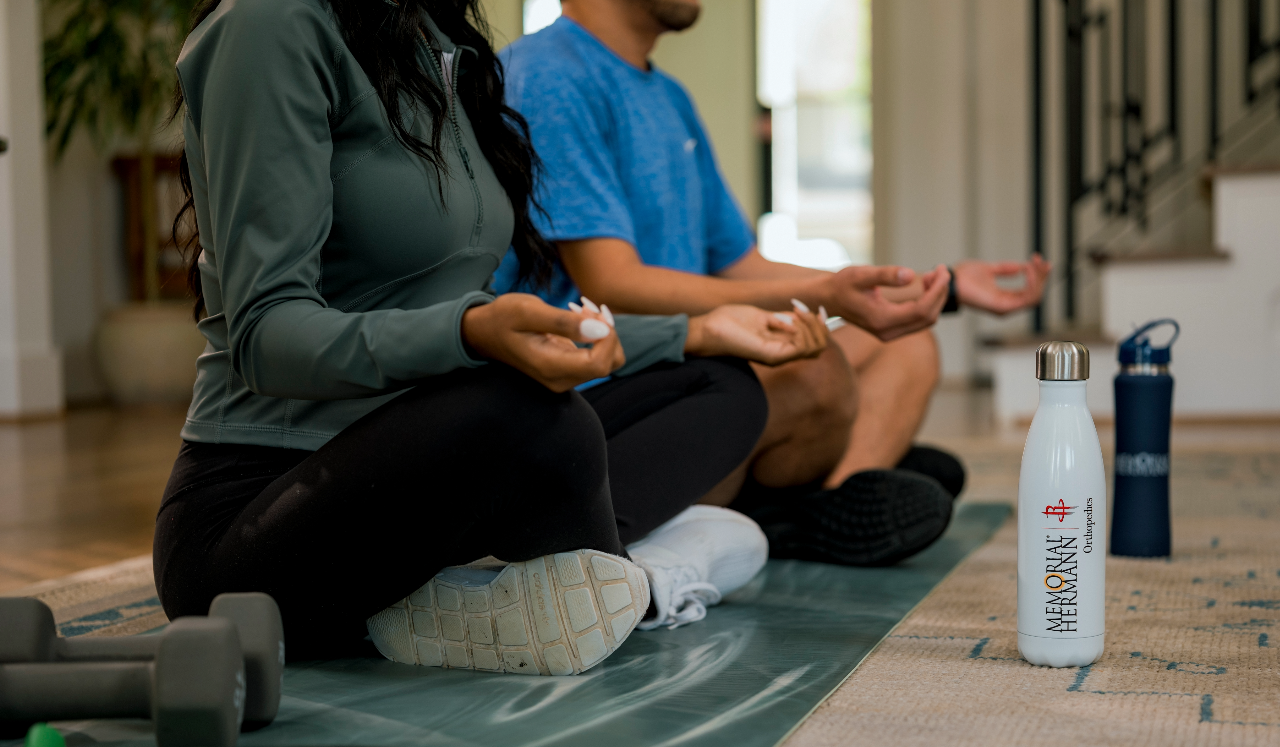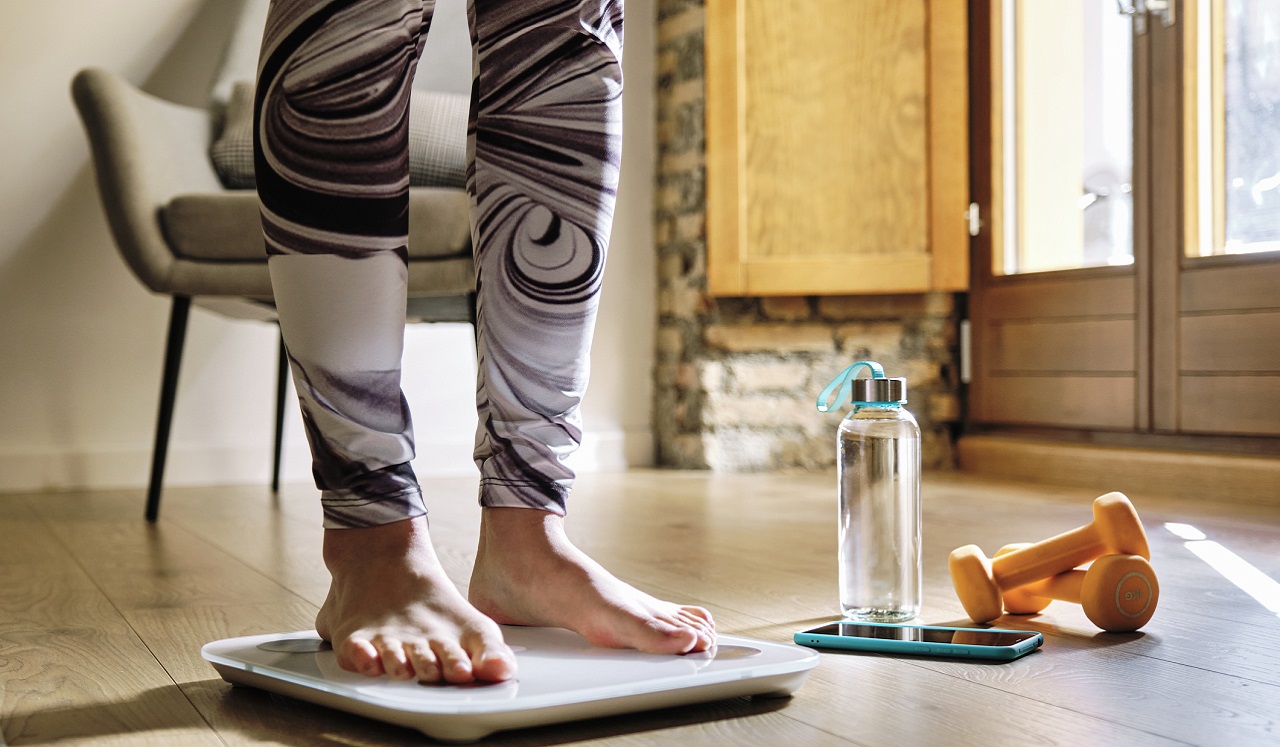The start of a new year can feel overwhelming, but by prioritizing self-care you can set yourself up for success.
“If you’re not taking care of your body and mind, you won’t be the best version of yourself, especially when others need you,” says Deniece Christ-Rice, program therapist with Memorial Hermann’s Population Health and Wellness team. “You and those you love will reap the benefits of a healthier mind and body if you prioritize self-care. You cannot give others your best without it.”
Help attain your self-care goals and dreams in the new year with these tips from Christ-Rice and Frances Monroe, system director of Memorial Hermann’s Population Health and Wellness programs.
Movement Matters.
“You don’t have to go to the gym for a half hour or an hour,” Christ-Rice says. “Even 15 minutes of activity—anywhere—helps your productivity, mood and digestion. And a few minutes here and there add up.”
She suggests doing squats, push-ups or wall push-ups while on hold for a call and taking dance breaks while making dinner. “You can include your kids and make it fun.”
Take Breaks.
Apprehensive about meditating? Try other approaches to ease your anxiety. Count to four while inhaling, hold your breath for four counts and then exhale for four counts.
Another option is called five-finger or hand breathing, Christ-Rice says. Hold out a hand and trace each finger with the other hand. Inhale as you go up one side of each finger and exhale as you go down the other side.
Be Mindful.
You can pay attention to all your senses—sight, sound, smell, taste and touch—at any time, even while brushing your teeth or walking down the block, Christ-Rice says.
Inside, you can feel the toothbrush against your gums, the minty smell of the paste and the sound of running water.
Outside, you can tune into the feel of your feet on the ground, the sounds of the rustling wind and the aromas of a neighbor’s dryer or a meal being prepared.
It's about being fully present in the moment,” she says. “Mindfulness calms us, slows us down and helps us feel satisfaction in the activity we’re doing rather than anticipating the next one.
You can also eat mindfully, putting down your fork between bites and chewing 20-30 times before taking the next bite, Christ-Rice says. Savor the taste, aroma and texture of what you’re eating.
You'll find you’re satisfied sooner and enjoy food more than when you mindlessly eat,” she says. “The more aware you are, the better able you are to make the choice to eat when you’re hungry and not because you’re bored, sad or stressed.”
Experience New Foods.
“When was the last time you tried different fruits and vegetables? It’s probably been several years, if not decades, as most of us are creatures of habit,” Monroe says. “Be open and curious about trying new things, whether it’s a different fruit each week or swapping healthy recipes.”
Explore farmers’ markets, where you’ll be introduced to different fruits and vegetables that are seasonal and local. You also could host a potluck meal where everyone brings a dish they’ve never tried before.
“A new recipe may change your mind about a fruit or vegetable you rejected as a kid,” she says. “We won’t know unless we try it again.”
Find Your Inner Child.
Reminisce on your fonder moments in life, many of which may have taken place when you were a kid. Play on swing sets, go on a walk or fill in a coloring book. Put on music and take dance breaks during your workday or while cooking dinner.
Not only is the motion healthy, but also the positive emotion it evokes, Christ-Rice says. “You’re more likely to do activities that have health benefits if they’re fun.”
Heed Your Feelings.
“Movement puts us in a better mood, releases stress and clears our mind,” Monroe says.
So does meditation, relaxing and eating a fruit- and veggie-rich diet. Fresh foods propel your brain to release feel-good hormones such as serotonin, dopamine and oxytocin.
A food journal can help you remember how energized or sluggish you feel based on your food selections—and show how that helps you make the right choices. Having healthy choices within reach is also beneficial, such as a fruit basket or an already prepared salad. “You also are more likely to eat the foods that make you feel your best,” she says.
Sleep Well.
“Getting a good night’s rest can give you the energy to be active and make it easier to make good food choices,” Monroe says.
She suggests turning off your smartphone and laptop an hour or more before bedtime. Create your own winding down ritual that may include reading or writing in a gratitude journal.
If your mind still races while you’re in bed, “a mental vacation is a great way to reset,” she says. Imagine you’re in a place where you feel calm, safe and relaxed. Picture all the details: the colors, sounds and aromas.
You also can reduce stress via progressive relaxation, in which you tighten and then release muscles, starting with your head, and moving down your arms and back until you reach your feet.
Relaxation apps such as Headspace and Calm offer sleep stories and meditations that may help you cruise to snooze.
Create a tranquil space where you sleep, Christ-Rice says. “Clutter can evoke stress, especially if you work in the same space where you sleep.
She keeps a notepad on her nightstand so she can write down the first step for each task that awaits her the next day. “Writing it down helps your brain release it, so you don’t lie awake thinking about it.”
Set Boundaries.
You need to set boundaries with others—and yourself. Make choices that prioritize you and your family, health and values. You may decide to stop answering your phone during meals or checking emails after a certain time.
You're doing everyone a favor if you say ‘no’ rather than accepting a task when you’re overwhelmed,” Christ-Rice says. “You could feel resentful and erode a relationship. It’s better to say ‘no’—and it becomes easier with practice.”
Get Your Daily Dose of Health & Wellness
Sign up to receive the latest articles in your inbox.


